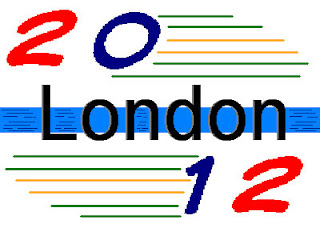2012 Summer Olympics
The 2012 Summer Olympic Games, officially the Games of the XXX Olympiad, also known informally as London 2012, began in London, United Kingdom on 27 July and will continue until 12 August 2012. The first event, the group stages in women's football, began two days earlier on 25 July. Around 10,500 athletes from 204 National Olympic Committees (NOCs) are expected to participate.
Following a bid headed by former Olympic champion Lord Coe and the then Mayor of London Ken Livingstone, London was selected as the host city on 6 July 2005 during the 117th IOC Session in Singapore, defeating bids from Moscow, New York City, Madrid and Paris.[6] London is the first city to officially host the modern Olympic Games three times, having previously done so in 1908 and in 1948.
Construction in preparation for the Games involved considerable redevelopment, particularly themed towards sustainability.The main focus of this is a new 200-hectare Olympic Park, constructed on a former industrial site at Stratford in the east of London.The Games also make use of venues which were already in place before the bid.
Venues
The 2012 Summer Olympic Games, officially the Games of the XXX Olympiad,also known informally as London 2012, began in London, United Kingdom on 27 July and will continue until 12 August 2012. The first event, the group stages in women's football, began two days earlier on 25 July.Around 10,500 athletes from 204 National Olympic Committees (NOCs) are expected to participate.
Following a bid headed by former Olympic champion Lord Coe and the then Mayor of London Ken Livingstone, London was selected as the host city on 6 July 2005 during the 117th IOC Session in Singapore, defeating bids from Moscow, New York City, Madrid and Paris. London is the first city to officially host the modern Olympic Games three times,having previously done so in 1908 and in 1948.
Construction in preparation for the Games involved considerable redevelopment, particularly themed towards sustainability. The main focus of this is a new 200-hectare Olympic Park, constructed on a former industrial site at Stratford in the east of London. The Games also make use of venues which were already in place before the bid.
There were some issues with the original venues not being challenging enough or being financially unviable. Both the Olympic road races and the mountain bike event were initially considered to be too easy, so they were eventually scheduled on new locations.The Olympic marathon course, which was set to finish in the Olympic stadium, was moved to The Mall, since closing Tower Bridge was deemed to cause traffic problems in central London.North Greenwich Arena 2 was scrapped in a cost-cutting exercise, Wembley Arena being used for badminton and rhythmic gymnastics events instead.
Financing
The costs of mounting the Games are separate from those for building the venues and infrastructure, and redeveloping the land for the Olympic Park. While the Games are privately funded, the venues and Park costs are met largely by public money.
The original budget for the Games was £2.4 billion, but this was increased almost fourfold to about £9.3 billion ($14.46 billion) in 2007.[70] The revised figures were announced to the House of Commons on 15 March 2007 by Tessa Jowell. Along with East End regeneration costs, the breakdown was:
Building the venues and infrastructure — £5.3 billion
Elite sport and Paralympic funding — £400 million.
Security and policing — £600 million
Regeneration of the Lower Lea Valley — £1.7 billion
Contingency fund — £2.7 billion
VAT — £800 million.



































































































No comments:
Post a Comment